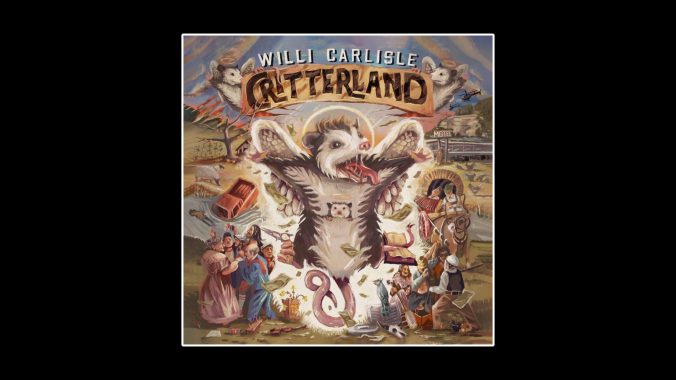Willi Carlisle Practices Radical Empathy on Critterland
The folk singer’s third LP seeks to make sense of contradictory impulses.

Willi Carlisle has been described as a folk singer who “speaks his truth,” which is almost right. More accurately, the Arkansas singer, songwriter and multi-instrumentalist is on a rambling, itinerant quest to live his truth—that is, to live a way that’s true to himself, which ends up reflected in songs that often display a radical sense of empathy. That sensibility underpinned his 2022 album Peculiar, Missouri, and a similar idea is at the heart of his latest, Critterland.
Carlisle’s third album doesn’t have the same sweeping scope as its predecessor, which was boisterous, messy and open-hearted on songs embracing a certain worldview: “Your Heart’s a Big Tent,” say, or “I Won’t Be Afraid.” In some ways, though, he digs deeper on Critterland, an album that is more about making the best of heavy circumstances. On 10 new tracks, Carlisle explores themes of addiction, suicide and what the press notes call “generational trauma.” The latter description presumably refers to “The Arrangements,” where a narrator who was estranged from his father finds himself reflecting on a troubled legacy when the old man dies. Carlisle sings in a voice more somber than usual, accompanied by acoustic fingerpicking and slashes of slide guitar.
-

-

-

-

-

-

-

-

-

-

-

-

-

-

-

-

-

-

-

-

-

-

-

-

-

-

-

-

-

-

-

-

-

-

-

-

-

-

-

-








































